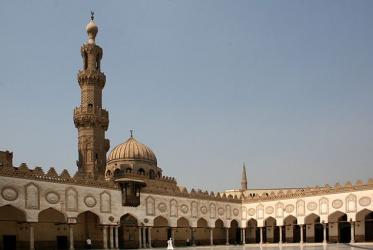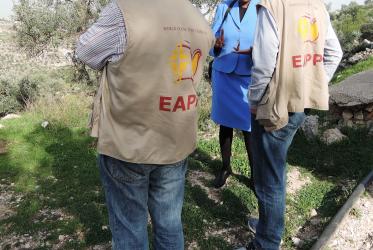Displaying 1 - 20 of 21
In East Jerusalem, “we will never give up our rights”
29 October 2021
In Palestine, “God honored this olive tree”
12 November 2020
WCC-EAPPI nurtures partnerships for just peace
03 January 2019
“Love will find a way”
23 August 2018
Broken glass of hope grown out of rubble
16 July 2018
WCC Executive Committee emphasize peace, justice and unity
19 November 2017
‘No Christmas bells in Mosul’ for a third year, says Assyrian priest
14 December 2016
Al-Azhar: navigating the difficult centre
06 October 2016
Owe Boersma will strive for equilibrium as EAPPI coordinator
18 August 2016
Tveit highlights unjust water resources for Palestinians
10 February 2016
A presence to accompany vulnerable communities
31 March 2015
Israeli attacks have worsened water systems in Gaza
08 August 2014












